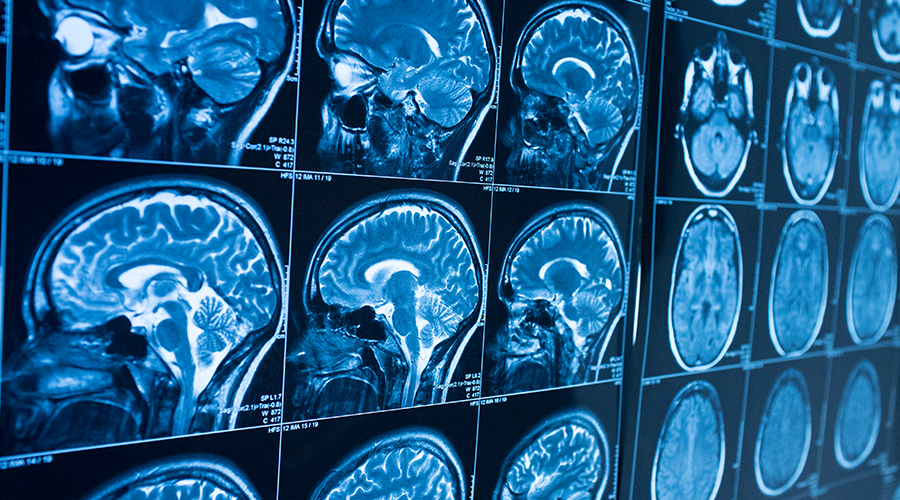
In this article:
- Understand the brain better
- Prepare for graduate school
- Enhance your expertise in health and science professions
- Expand your creative horizons
- Challenge yourself academically
The Certificate in Neuroscience is one of our most-searched-for offerings at Penn LPS Online. We can understand why—after all, who wouldn’t want to know more about how the brain works? Who among us hasn’t wondered why we love art and music, or why certain drugs do or do not affect us, or what’s going on beneath the surface of our emotions?
On the other hand, our certificate alumni and faculty will be the first to tell you that completing a Certificate in Neuroscience is a significant commitment. While our asynchronous online courses make it possible for working adults to balance coursework with other personal and professional obligations, new neuroscience students can expect a rigorous challenge. So why do people do it?
Our Certificate in Neuroscience students come from a wide range of backgrounds and interests. They are researchers, educators, social workers, artists, ballerinas, parents, and more. Some are Bachelor of Applied Arts and Sciences candidates who are working toward a degree concentration in Physical and Life sciences. Some already have advanced degrees—even medical degrees—but want to expand and update their knowledge of the brain and body. Some stumble into the certificate out of curiosity, while others pursue an academic credential from Penn specifically to learn from the best.
Meet a few of our certificate graduates and learn what they were able to accomplish with a Certificate in Neuroscience.
Understand the brain better
“Neuroscience is a complex, integrated system that helps explain behavior, learning, addictions, etc. while also serving as the foundation for understanding neurological diseases such as Alzheimer's, Parkinson's disease, gastroenterological disorders, and much more,” explains Camila Loaiza, who works at University of Pennsylvania School of Nursing. “It's truly mind-blowing.” As the interim project manager for Tiempo Juntos Por Nuestra Salud, a research study focused on exercise and cognitive health among the older Latino population of Philadelphia, Camila found that the Certificate in Neuroscience courses helped her understand the participants in her study in a new light. In addition to her professional interest, Camila professes a lifelong curiosity for the brain and biological processes—which has helped shaped some of the possibilities for her next career steps. “I want to continue seeking opportunities to enhance what I learned in the Certificate in Neuroscience by integrating it with nutrition. I find it fascinating how we can control our future health through the food we eat,” she says. Another career path she is considering is genetic counseling; in this role, says Camila, neuroscience in combination with genetics can enable her to better assist future individuals.
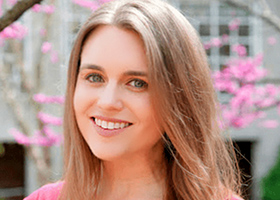
For Kelley Roark, the drive to understand the brain was personal: she experienced epileptic seizures as a child, which motivated her to understand the molecular basis for neurological disorders. As a nontraditional student returning to college as an adult, however, she encountered logistical barriers to enrolling in the advanced scientific courses she sought. “The Certificate in Neuroscience leveled the playing field and made things equitable,” says Kelley; she was able to complete coursework at Penn alongside her final degree requirements at the University of Maryland College Park. “The minute I was in Introduction to Neuroscience and looking at the weekly problem sets, I had an a-ha moment: Okay, this is definitely what I need to do,” recalls Kelley. “They are presenting the information in a manner that is quantitative and qualitative, detailed, and molecular. This is exactly what I was hoping for. I’m in the right place, I’m doing the right thing.” Now that her certificate and college degree are both in hand, Kelley has gone on to work in a translational research lab that specifically focuses on the molecular mechanisms associated with epilepsy. She is looking into PhD programs.
Prepare for graduate school
Like Kelley, quite a few Penn LPS Online students leverage their non-degree program as a bridge to more advanced coursework. Now pursuing an MS in Medical Sciences with a concentration in neuroscience at the University of Florida, Kimberly-Marie Gorion credits the Certificate in Neuroscience with helping her make the leap. Kim’s first foray in graduate school was actually interrupted by a brain injury; after taking some time to recover, she sought an opportunity to pursue neuroscience studies while working full-time in a research lab. “The relevance of the Certificate in Neuroscience courses, affordability, accommodation for working professionals, and resources tailored to remote students really appealed to me,” Kim recalls.
The intensive online coursework challenged Kim to develop good study habits and a work-life balance that has continued to serve her in graduate school. Now that she is in the midst of her graduate coursework, she has also encountered case studies or topics that she first learned at Penn LPS Online: for example, the workings of an owl’s auditory system and the mechanisms of age-related neurodegenerative diseases. “The Certificate in Neuroscience gave me back my self-confidence and drive to go back to school and start fresh,” says Kim. “I am really thankful for Penn LPS Online and the professors for giving me the push to return to academia.” She hopes to continue on from her MS to a PhD in neuroscience as she continues to work in academic research.
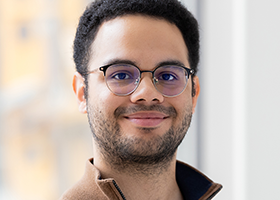
Joe Barreto also had to put his original academic plans on hold: he had a full scholarship to study biomedical engineering and a long-term vision for his science career, but decided to take courses online so he could serve as a full-time caretaker for his grandmother in Puerto Rico. He enrolled in the Bachelor of Applied Arts and Sciences degree with the intent of making it as close to a traditional Bachelor of Arts in neuroscience as possible, completing a Certificate in Neuroscience in the process. “The coursework actually ended up being surprisingly similar to the in-person program at Penn,” he says. “A lot of the professors teach the same classes and so I feel like that goal was really met.” Like Kelley, his first introductory course gave him an a-ha moment: “I remember thinking, wow, this science thing is working. I could probably do this professionally.” Soon enough, he did—eventually moving to Philadelphia to work in a research laboratory at Penn and then following his laboratory to the University of Colorado. Joe graduated from Penn as Dean’s Scholar and is currently applying to PhD programs—an academic achievement he has dreamed of since high school. “I used to almost lose sleep over it, thinking about my potential to get into a PhD program,” he says. “And now with all of the work that I've been able to do with the University, I think my chances are higher and I'm just very excited about that, especially.”
Enhance your expertise in health and science professions
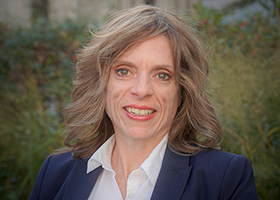
“Science is always evolving,” says Michelle Miller, Director of Clinical Development, Gene Therapy Program at Penn’s Perelman School of Medicine. “There are constantly discoveries. You have to stay on top of it.” With a background in immunology, Michelle has worked with pharmaceutical companies toward developing new treatments for autoimmune diseases as well as infectious diseases such as HIV and hepatitis. To stay up to speed in her field, Michelle confers with medical experts and reads research journals—and when she heard about the Certificate in Neuroscience, she jumped at the chance to learn more about what she calls a “black hole” in her scientific background. “The online courses gave me the opportunity to fill some gaps in my knowledge without interrupting my work or my time with my children,” she says.
Having now studied neurological cell signaling, the ways different drugs work in psychopharmacology, and what happens to different cells during different disease states, Michelle feels that the “black hole” in her neurology knowledge has been illuminated. “I have a better understanding of the literature that I read and the diseases I work on that have a neurologic component. When I’m in scientific meetings, I can formulate questions better. I feel like I’m better prepared, even in my own job, to have these discussions with experts in this field,” she explains. “I don’t know as much as they do, but I’m not clueless.”
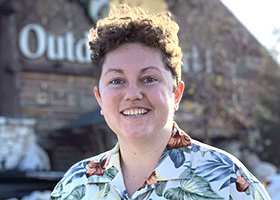
Likewise, Audrey Cavanah already had a strong background in biology and biomedical research when she stepped into a research specialist role with Penn Neurology. After a year of migraine research, particularly focused on hormones, proteins, and peptides, Audrey enrolled in the Certificate in Neuroscience to understand more about how these biomolecules influence behavior. “I was at a point where I really wanted to expand my academic knowledge with more neuroscience-specific coursework so I could apply it to my work in the lab,” they explain.
Indeed, Audrey found that many concepts from the classroom were directly applicable to their lab work. “The coursework contextualized a lot of my migraine research as well as the research my coworkers are doing on epilepsy and Alzheimer's,” they say. “Something would make sense and become clear to me because a teacher had phrased it a certain way or put a specific pathway in front of me.” With their enriched scientific knowledge base under their belt, Audrey is considering a career in neuroscience research—or at least, in the meantime, additional coursework to earn an Advanced Certificate in Neuroscience.
Expand your creative horizons
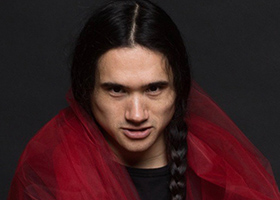
Micah Huang is a music composer and audio engineer who began studying cognitive science independently in order to understand what happens on a biological level when people listen to music. “I came to the conclusion that I needed to devote more serious study to it,” they recall. “Penn LPS Online was perfect for me because the program was a manageable size, and really good quality.” Micah initially enrolled only in the introductory course, but curiosity led them to keep going. Of course, they particularly enjoyed NEUR 1600: The Neuroscience of Music, which covered different scale systems and harmonics used in different cultural traditions, and discussed how and why certain auditory cues have a calming effect while others are more stimulating or even agitating. “It got very, very technical, and as a musician, I got to nerd out really intensely,” they recall. “The neuroscience perspective has given me a way to articulate specifically, in concrete terms, effects and philosophies of music that have just been intuitive feelings for me in the past,” they say.
After completing the Certificate in Neuroscience, Micah was accepted into a PhD in Creative Practice and Critical Inquiry at Harvard University, where they plan to pursue music as well as interdisciplinary courses that deepen their understanding of what music is and how people experience it. The Certificate in Neuroscience may have benefited their graduate school candidacy, but beyond that, Micah says that the subject matter itself has been inspiring. “The effect of that knowledge on me has been profound,” they say. “It gives me a lot of hope.”
Challenge yourself academically
No one will tell you that the Certificate in Neuroscience will be easy. “It's all about adjusting and knowing how to set priorities, and ensuring you understand what works best for you,” advises Camila. “The initial phase is probably the hardest because you're adapting to a new routine, but once you get into the rhythm, you learn how to separate work from school.”
Audrey encourages Certificate in Neuroscience students to make the most of their community. “My professors were available if I needed them; They had their office hours and were very responsive on Canvas discussions or via email,” they say. And in the virtual classroom, they add, “I felt like I had a cohort where I could ask questions about study techniques or see if anyone was struggling with a specific concept from class.” Camila agrees: “Although all of my classes were asynchronous, it was reassuring to know that I wasn’t alone. You can also feel a sense of connection with your classmates through various interactive activities such as introductions, homework assignments, and synchronous question sessions. These interactions help you realize that there are others who share your interests, questions, doubts, and are experiencing the same things you are (for example juggling work, a family and school).”
Each of the students quoted above came to Penn LPS Online with very different educational backgrounds, motivations, and goals—but in the end, they all earned a Certificate in Neuroscience from an Ivy League university and found it both meaningful and worthwhile. “I feel more knowledgeable. I feel more skilled,” says Joe. “I am excited for my future.”
Want to learn more? Read about Penn LPS Online’s neuroscience courses in Your mind at work: Applying neuroscience in the classroom and outside of the lab, and see how well you know your own mind in 7 Fascinating facts about neuroscience and the brain.
